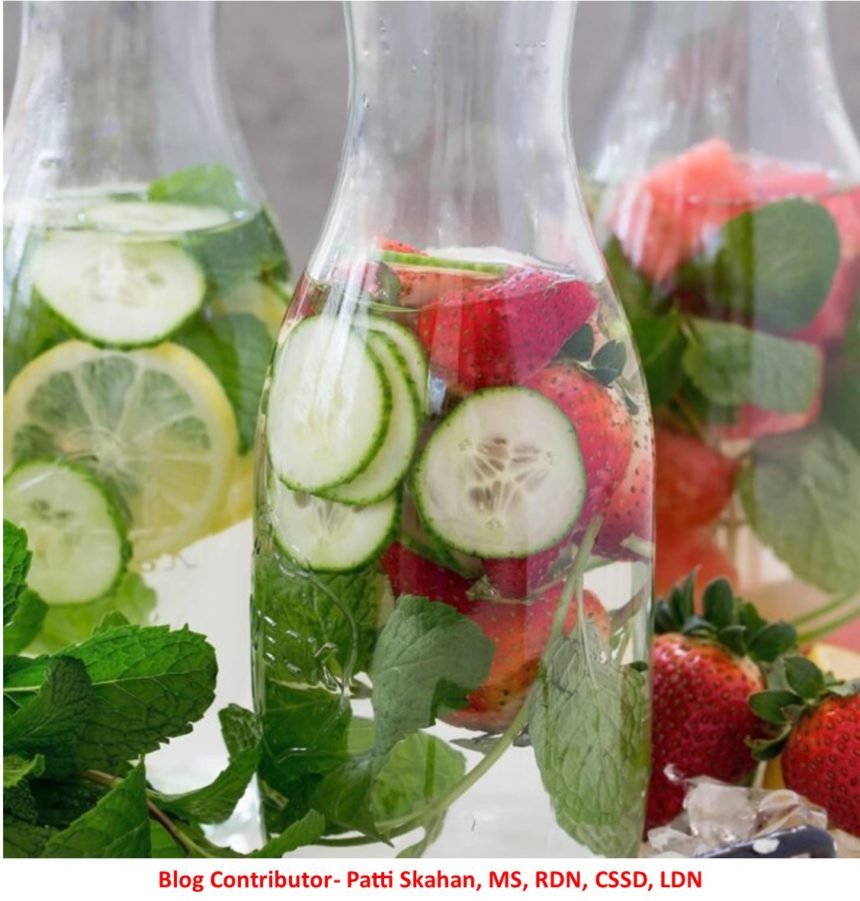As the temperatures soar in the summer, it is important to stay well-hydrated to keep the body healthy and performing well. Water is needed for many body functions such as cooling, distributing nutrients, and various chemical reactions.
How much fluid do you need? The amount varies depending on several conditions such as the environment, your level of activity, and body size. The Institute of Medicine recommends adult males drink 3 liters (about 13 cups) of fluid per day. Adult females require 2.2 liters (about 9 cups) of fluid per day. Those who are physically active require more.
Follow these tips to help you stay well-hydrated:
Drink a glass of water first thing in the morning, even before your cup of coffee.
Carry a reusable water bottle and sip throughout the day.
Drink with each meal.
Eat plenty of fruits like strawberries and watermelon and vegetables like lettuce and spinach which contain lots of water.
Drink before, during, and after physical activity.
Be aware of the signs of dehydration which include thirst, dizziness, headache, fatigue, irritability, and muscle cramps.
Check the color of your urine. Clear to pale yellow shows that you are well-hydrated. A darker color means you need to drink more.
Be smart with your drinks. In addition to water, include milk, 100% fruit juice, unsweetened coconut water, smoothies, tea, and seltzer water.
Juice, unsweetened coconut water, and milk give the added bonus of vitamins and minerals.
Avoid sugary drinks such as soda, lemonade, and sweet iced teas. Limit alcohol and high amounts of caffeine which promote fluid loss.
Tired of plain water? Enhance water by adding slices of cucumber, lemon, lime, orange, or grapefruit.
Be creative with these refreshing combinations:
- Pineapple chunks and mint leaves
- Cucumber and lemon slices
- Orange slices and fresh peeled ginger
- Strawberries and lemon slices
- Raspberries and lime slices
- Watermelon and basil leaves
Do not wait until you are thirsty. Drink to stay hydrated during your summer fun!
Reference: Institute of Medicine. Dietary Reference Intakes: Water, Sodium, Chloride, Potassium, and Sulfate. Food and Nutrition Board. Washington, DC: National Academy Press, 2004.
Photo by PhotoMIX Company from Pexels.


Leave a Reply